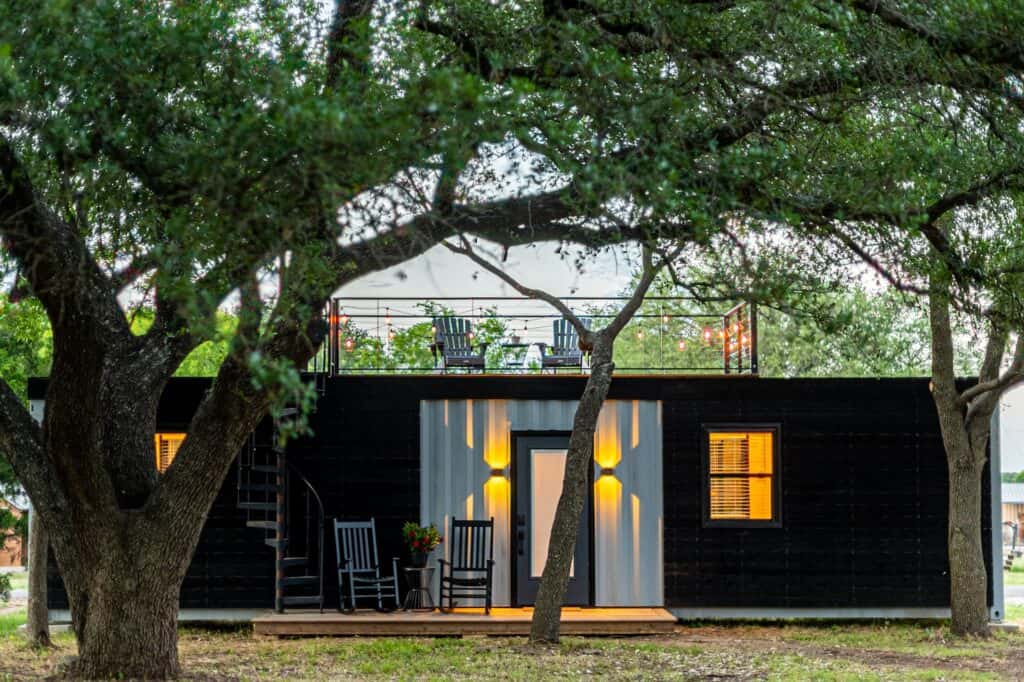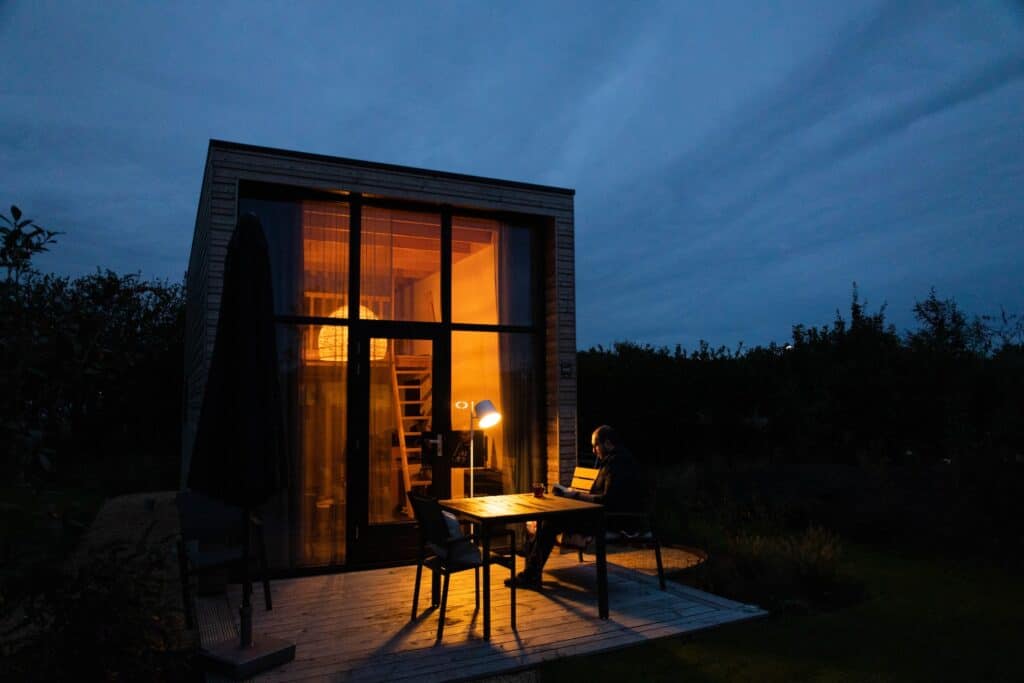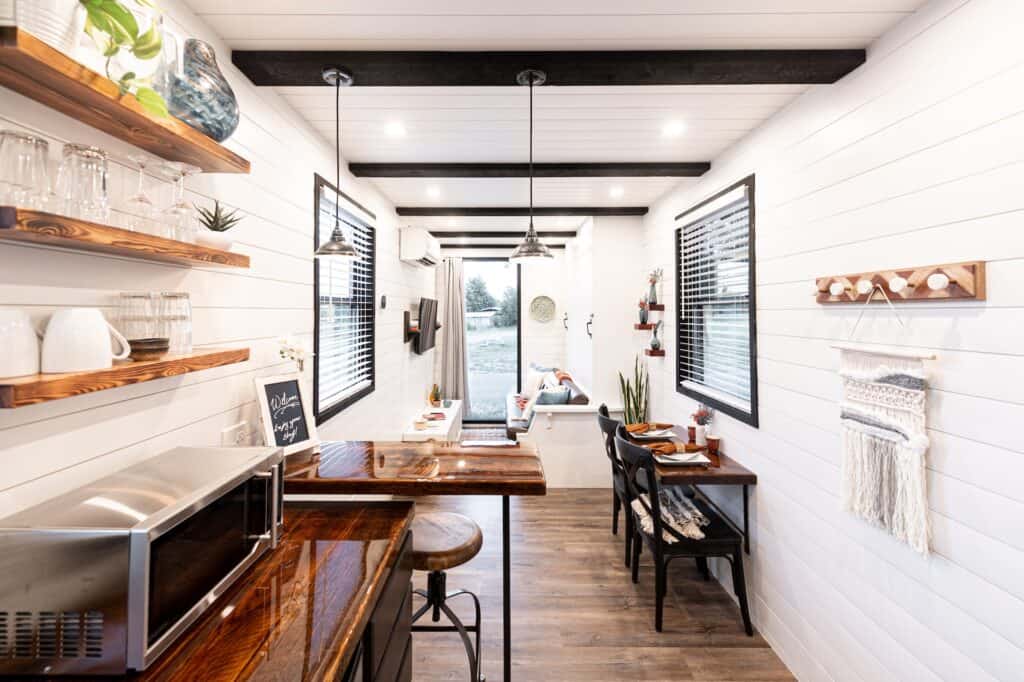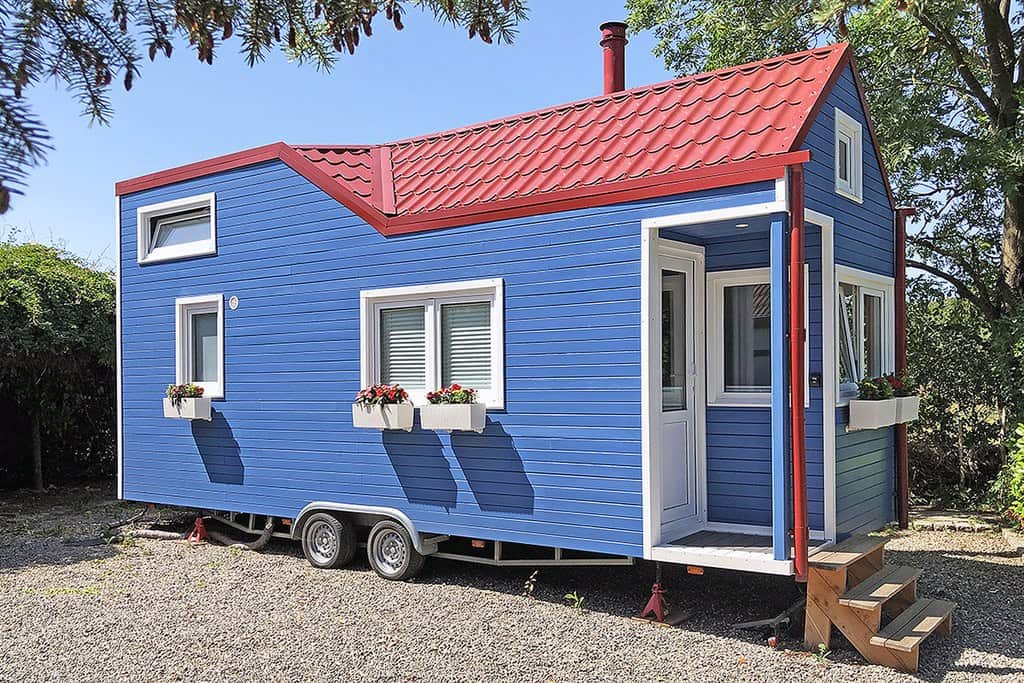
Are you considering hosting a tiny house Airbnb? You’re on the right track. Tiny homes are all the rage these days.
These miniature homes appeal to young adults wanting more financial freedom, middle-agers looking to downsize, and recent retirees wanting a simpler life. They also attract renters and travelers who are environment-conscious and want to reduce their eco footprint.
If stats are an indication of how popular tiny houses are, a 2020 survey found that more than half (or 56%) of Americans would consider living in a tiny house. And 86% of non-homeowners would be willing to buy a tiny home as their first house.
The reasons they cited were affordability, efficiency, eco-friendliness, and a minimalist lifestyle.
But what about tiny house Airbnbs? How popular are they?
Well, travelers were already craving unique stays even before the Covid-19 pandemic hit. These include tiny homes, yurts and treehouses.
According to Airbnb, small, simplistic, and efficient spaces like shepherd’s huts and tiny homes trended up 112% and 85%, respectively, from 2019 to 2020.
There were around 14,000 tiny house listings on Airbnb in 2019. Last year, that number jumped to 24,000.
So is it a good idea to hostt a tiny house Airbnb?
Well, this 25-year-old made $860,000 in revenue from his Waco, Texas tiny house last year.
This guy spent $17,000 in 2019 to build a tiny house in Idaho; now he makes $49,600 on Airbnb.
And this dude put 2 tiny homes in his Oakland, California backyard as an easy way to make cash. Now those two tiny house Airbnbs are his primary source of income.
Yes, you can rent out a tiny house if you legally own the property it’s sitting on. In many areas, tiny houses on wheels – or THOWs – are considered temporary structures and recreational vehicles under zoning ordinances. But some rural areas don’t have such rules and allow RV camping for an indefinite period of time.
So should you invest in an Airbnb tiny house? Let’s look at both the advantages and disadvantages.
Investing in an Airbnb tiny house is one of the cheapest ways to start a vacation rental business. You can buy or build it for a fraction of the price of other types of real estate.
The average price of a tiny home is $52,000 which is 87% cheaper than the average price of a normal-sized house. Lower upfront costs mean smaller down payments and lower mortgage payments!
That makes tiny homes a great choice for folks wanting to get into the market without putting down a lot of money. In fact, a lot of them start out as a D-I-Y projects.
If you live in an area with lots of tourist traffic, and have extra space in your backyard, then building and renting out a tiny home can be a great way to make money.

Airbnb tiny houses are trending! People will pay a lot of money to stay in them just to see what it’s like.
According to Airbnb, tiny homes are the top-grossing unique space type. They took the top spot in 2021 – with more than 2.5 million nights booked. Tiny house hosts earned a combined total of more than $195 million that year.
These miniature houses have a special draw because of their novelty and charm. Airbnb guests like staying at unique, ‘Instagrammable’ places, and tiny homes are right up that alley. They can be customized and configured in the most unique and extraordinary styles and shapes.
You can craft them out of shipping containers, sheds, cabins, shepherd’s huts, trains, or an old school bus. And they don’t necessarily have to be sitting on the ground. Treehouses and houseboats also classify as tiny homes!
Their novelty gives you the potential to make higher rental income. You can charge anywhere from $40 to $200, depending on your location, the amenities you offer, and your unique theme.
Just look at how big the tiny home market is right now.
Technavio estimates it to grow at a CAGR of 4.88% between 2022 and 2027. The size of the market is forecast to increase by $4.1 million and is expected to see a year-on-year growth of 4% this year.
A small house is easier to build and manage. You have fewer interior and exterior spaces to organize and clean, and you don’t have to repair as many appliances. Turnovers will be simpler and quicker!
At the same time, you don’t have to go overboard with the amenities. With the money you save on indoor features, you can spend a little more on the outdoor living area. You can add things like a patio, a hot tub, a swing, or a fire pit for making s’mores.
It’ll also cost you less to integrate smart technology into them. A single smart thermostat or smart speaker is enough to cover the whole house.
Tiny homes use a lot less material in construction. There are fewer things to maintain, they use less energy to heat or cool, and they save a lot more money in general. Expect your utility costs to go dow to as low as $40/month!
Tiny homeowners are reported to leave 45% less environmental impact than regular homeowners do.
Tiny homes can be made in just a short period of time. They can be built on-site or off. Many are modular and pre-fabricated, made entirely in factories. So your business can be up and running in no time.
And because many tiny homes are on wheels, you can relocate them in case the market or the Airbnb rules in your area change and work against your favor. Or when you find a spot that has better scenery!
So you might be thinking, they’re not much different from RVs. Well, tiny homes are not only bigger, but they’re also built to the same structural standards as a house.
They’re equipped with everything you need to live comfortably, including a kitchen, a bathroom, one or 2 bedrooms, and storage spaces. They’re built with proper insulation, heaters, and airconditioners. Many come with solar panels, sloped roofs, wood stoves, their own septic systems, and even wood-burning fireplaces.

Due to their small size, tiny homes aren’t appealing to problem guests. How would they be able to throw a party, commit illegal activities, or bring in people they haven’t told you about? There’s nowhere to put them!
Tiny house Airbnbs are a niche market, though. And it’s still in its infancy. As with any market that has yet to mature, there are gray areas and risks involved that you have to be keenly aware of.
Figuring out the zoning and permit rules can be a challenging part of starting a tiny house Airbnb.
In most states, you’ll need a building permit to set one up. You’ll also need to follow HOA rules, building codes, and zoning ordinances just like you have to when building a regular-sized home.
In many places, tiny homes are considered accessory dwelling units (ADUs) and need to be registered as such. In others, THOWs are classified as recreational vehicles and may be subject to the same rules as an RV. They won’t be registered as a regular home.
Some counties limit how many nights you can sleep in an RV. For example, you might not be able to “camp” for more than five nights in a row. Other areas require THOW to be parked only in designated spaces, like a mobile home park.
Find out the local codes and ordinances in your area before seriously considering a tiny house Airbnb.
But many states do allow people to build and rent tiny homes:

Mobile tiny homes are often underestimated because they’re moveable and aren’t attached to the ground. THOWs are classified as personal property, not real estate.
And when it comes to property appraisals, things like land value, size, improvements, market demand, and depreciation are given top consideration.
And THOWs do depreciate, much like cars. They don’t appreciate over time as normal homes do.
For example, a mobile home will lose about 3.5% of its value each year. In six years, a tiny mobile home bought for $50,000 could be worth just $41,000. And you’d have an even harder time reselling if it was built on a trailer that hasn’t been moved in a few years.
So if you don’t have a permanent plot of land to accompany your THOW, you’d be at a disadvantage.
But if you build a tiny cottage or an ADU – the kinds that are built with real foundation and set in your backyard – those are considered real estate and part of your property.
In fact, homes with ADUs can raise their resell value by as much as 50%!
It’s more or less the same when it comes to financing. Not many banks will agree to home loans for THOWs because they’re not seen as viable dwelling places. Your tiny home will unlikely qualify for a standard 25-year residential mortgage.
Also, home loans aren’t structured to accommodate small amounts of money. You’d probably have to take out an RV or personal loan to finance a THOW.
For an ADU, you may be able to get help through cash-out refinance, home equity loans, construction loans, government grant programs, or even your credit card.
Whichever way, make sure you have a good business plan ready so you can get the loan officers and investors on your side.
Some of the maintenance for a tiny home can require specialized care compared to the average vacation rental.
The bathroom, for example. In a normal vacation rental, you’d have standard plumbing installed. Most tiny homes, however, have compost toilets, foot pedal sinks, and a different type of water supply system that can take some effort to oversee.
Tiny houses are small in size but they pack a punch when it comes to revenues. Set in the right place and geared toward the right market, they can bring you sizable ROI that a traditional rental likely won’t.
You can take advantage of the rising demand for small living spaces. There’s lower cost involved, and a lot lesser risk. Tiny house Airbnbs are a great option for first-time vacation rental owners.
Do your due diligence and weigh the pros and cons carefully. You might find that a tiny home Airbnb investment may be the right move for your real estate business.
Read also: How to Buy Your First Airbnb Property in 7 Simple Steps
Ready to learn how we built and operate a $2M/year short-term rental business, operate properties throughout the USA remotely, and acquired 70+ properties without owning any in just 2 years? Attend our free online master class to learn how you can do the same. Click here.